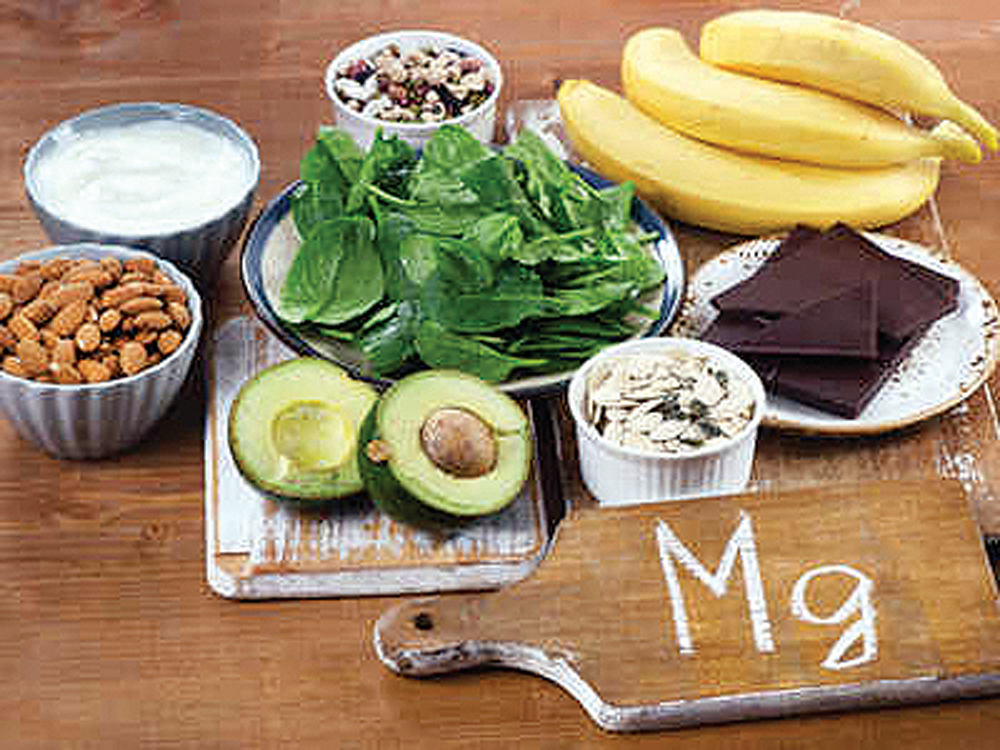
Polycystic Ovary Syndrome (PCOS) is typically earmarked by irregular or by no menstruation at all. Women with PCOS typically have multiple cysts in their ovaries, caused by an overproduction of hormones called androgens. Sadia Salman who is a certified nutritionist and CEO of Diet by Design shares helpful tips on how to fight PCOS with diet and nutrition.
* This write up is not medical advice. Please consult your health practitioner and nutritionist for a proper consultation.
What is PCOS and how is it diagnosed?
PCOS is a condition that causes a hormonal imbalance in women of reproductive age. Each woman’s PCOS symptoms are unique. Many studies have explored the link between blood sugar, insulin, and PCOS. PCOS can cause increased androgen (male hormone) production. Elevated androgen levels put women at a higher risk of heart disease, high cholesterol, and Type 2 Diabetes. Regulating your hormone levels is an effective way to control your symptoms and improve fertility issues related to PCOS. Control hormone levels by consuming nutritious, high fiber foods, and eliminating blood sugar issues associated with PCOS. If you have been diagnosed with PCOS, an improved diet can help relieve your symptoms.
What are the facts to remember about PCOS?
PCOS is the leading cause of female infertility. PCOS is the number one health condition women face today, with more than 1 in 5 suffering from its symptoms. According to the American Society for Reproductive Medicine, the prevalence of infertility in women with PCOS is between 70-80%. There are no known causes of PCOS. Research suggests that PCOS may be caused from both genetic components and environmental influence. PCOS can be diagnosed without the presence of cysts on ovaries. Doctors will perform a series of blood tests, ultrasounds, and a symptom analysis to diagnose PCOS. Although PCOS stands for Polycystic Ovarian Syndrome, many professionals are working to change the terminology. Women can be diagnosed with or without the presence of cysts on ovaries.
Is obesity correlated with PCOS?
Women with insulin insensitivity due to PCOS are not able to convert sugar to energy, resulting in higher levels of insulin in the bloodstream. Higher levels of insulin cause an increase in androgen production and an increase in appetite.
How can our diet improve our health when dealing with PCOS?
Eat a balanced diet. Consuming a well balanced PCOS diet will help to keep your body in a neutral, homeostatic state. A balanced PCOS diet allows insulin to function properly by bringing glucose to your cells for energy. Follow a consistent routine and regular meal times. Do not skip meals. Skipping meals can crash your blood sugar levels, leading to food cravings and overindulgence. Keeping a routine will allow your blood sugar levels to stabilise. Stable blood sugar aids in the proper androgen production in your body. Choose nutrient rich food, high in vitamins and minerals. Studies show consuming foods high in Vitamin D, Vitamin B, Iodine, Selenium, and Magnesium will greatly aid in improving insulin resistance, and decrease the severity of symptoms associated with PCOS.
Which vitamins and minerals play significant role in PCOS relief?
• Vitamin D.
• Vitamin B8.
• Selenium.
• Iodine.
• Magnesium.
What kind of diet should be included to fix PCOS?
• Natural, unprocessed foods.
• High-fiber foods.
• Fatty fish, including salmon, tuna, sardines, and mackerel.
• Kale, spinach, and other dark, leafy greens.
• Dark red fruits, such as red grapes, blueberries, blackberries, and cherries.
• Broccoli and cauliflower.
• Dried beans, lentils, and other legumes.
• Healthful fats, such as olive oil, as well as avocados and coconuts.
• Nuts, including pine nuts, walnuts, almonds, and pistachios.
• Dark chocolate in moderation.
• Spices, such as turmeric and cinnamon.

Do not consume the following:
• Sweetened juice, fruit in heavy syrup and sweetened applesauce.
• Processed foods.
• Starchy vegetables such as potatoes, corn, and peas.
• Refined grains made with white flour (pasta, white bread, white rice, bagels).
• High sugar cereals and protein bars.
• Soda and Juice.
• Cookies, cake, and candy.
• Potato chips and pretzels.
• Some research suggests caffeine can make PCOS symptoms worse!
SEEDS AND HERBS TO TREAT PCOS
Natural Adaptogens help treat PCOS:
• Ashwagandha.
• Curcumin.
• Tribulus terrestris.
• Licorice root.
• Lavender.
• Fenugreek Extract.
• Evening primrose.

Seeds for the treatment of PCOS:
• Flaxseed seeds.
• Sunflower seeds.
• Sesame seeds.
• Pumpkin seeds.
• Chia seeds.
Where can we get adaptogens from?
We have developed scientifically proven organic products at Diet by Design especially for the treatment of PCOS which include these natural adaptogens, seeds and thousands of patients have been treated well. These seeds are not to be taken without the consultation of a nutritionist as they have far reaching effects on the body and need to be balanced with other ingredients.
Is Keto diet recommended for PCOS?
The Ketogenic diet is a special high-fat, low carbohydrate diet designed to control seizures in individuals diagnosed with epilepsy. In recent pop culture, the Keto diet is viewed as a quick weight loss solution. Because the Keto diet is an extremely strict, nutritionally unbalanced diet, we do not recommend it for PCOS management. In order to create a lifetime of nutritionally sound habits, follow the advice of your dietitian to manage your PCOS. Avoid the Keto diet.

What about Intermittent Fasting for PCOS?
We do not recommend Intermittent Fasting for long term PCOS symptom relief. If you have PCOS, it is very important to consume multiple small meals throughout the day. This approach will allow your insulin levels to self-regulate and remain balanced. If you are intermittent fasting, your large meals cause Hyperinsulinemia (excess insulin in blood). Hyperinsulinemia increases androgen production, increasing the clinical effects of PCOS!
Can PCOS diet help in weight loss?
Yes, weight loss is possible with the right PCOS diet. Weight loss can be difficult for women with PCOS, but it is achievable. It is important to remember that weight loss with PCOS will be gradual and slow due to the hormonal imbalances, inflammation, and blood sugar issues associated with PCOS.




1731578852-0/diddy-(41)1731578852-0-165x106.webp)












COMMENTS
Comments are moderated and generally will be posted if they are on-topic and not abusive.
For more information, please see our Comments FAQ